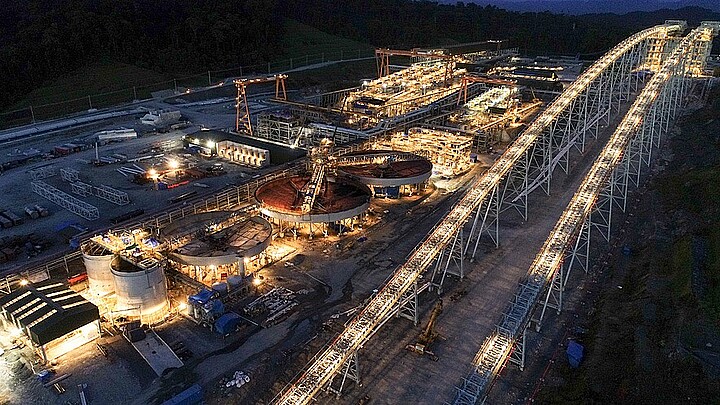Business
FREYRE: Businesses should nearshore to Latin America
Pedro Freyre, chair of Akerman International Practice, discusses biggest misconceptions of doing business in Latin America and explains why investors shouldn't miss out on doing business in the region
April 7, 2022 4:02pm
Updated: April 9, 2022 1:40pm
As American companies look to move production away from China and Southeast Asia, Latin America has increasingly become an appealing alternative for businesses tired of dealing with growing supply chain and legislative disruptions.
After all, the our neighbors to the south have a strong manufacturing base and a growing talent pool of skilled tech workers.
Technologically, the region is growing, too.
But as a recent report from Global Trade Magazine reveals, many companies are weary of moving their business to Latin America thanks to biased media reporting that focuses on violence, corporate corruption and increasingly anti-market regimes.
In an interview with GTM, Pedro Freyre, chair of Akerman International Practice, discusses biggest misconceptions of doing business in Latin America and explains why investors shouldn't miss out on doing business in the region.
When asked what the biggest myths surrounding Latin America’s business climate, Freyre pointed at the commonly held notion that “Latin American businesses are not up to speed on the use of technology.”
“These misconceptions – or what some could call biases, are that businesses in Latin America are unsophisticated and they lack understanding complex issues. This is absolutely incorrect,” he said.
“Latin America is a resilient, tough business environment with a lot of ups and downs, but also very global in that it deals with various jurisdictions in its trade relationships. I have found Latin American clients to be sophisticated and understanding of issues and nuances. There are always legal cultural differences and part of our job is that we are the interpreters that bridge this gap.”
Freyre also noted that Latin American has a competitive advantage over other markets because the region is used to working in “difficult and volatile environments,” which he believes makes them “very adaptable” in today’s business climate.
“They are fast on their feet and work with different cultures, buyers, and sellers, and various interlocutors very well because that is what they had to do to survive and succeed. This is one of the competitive advantages found here because that’s what businesses had to do to survive in the past. Latin Americans are incredibly open to dealing with different nationalities, markets, and opportunities,” he noted.
According to the Akerman chair, another major benefit to working in Latin America is the region’s vast natural resources – many of which are still untapped.
“Latin America has vast natural resources. For example, Brazil is a leading provider of all kinds of natural resources. Back in the forties, Argentina was a main provider of grains and beef to Europe. The region was a tremendously powerful provider of these things. Currently, the Chinese are making inroads over Latin America in their search for raw materials and agricultural products. It’s part of the natural wealth of Latin America. Latin American businesses are now becoming much more integrated, enabling cross-border business,” he said.
But as the global political and economic landscape continues to shift, many businesses will naturally be turned off by the media’s portrayal of the region – especially amid the region’s “clumsy” coronavirus response and news of a new “pink wave” flooding across the region.
“Latin American businesses have been there before, they come from an exceedingly difficult environment, stability has always been a challenge,” he noted, adding that “It is important to remember that this is a business climate fraught with peril and difficulties but is also full of opportunity.”
“As the saying goes, out of great problems come great opportunities.”
Ultimately, Freyre anticipates a reshuffling of assets and business orientation and interests in the near future. Although he believes Latin America may lag behind as the global economy takes off in 2022, he said that Brazil is the country to watch when considering the region’s resilience.
“I’m also keeping my eye on Brazil, which is going through great difficulties. Brazil is a major powerhouse, however, and I am betting on it overcoming these difficult times.”










